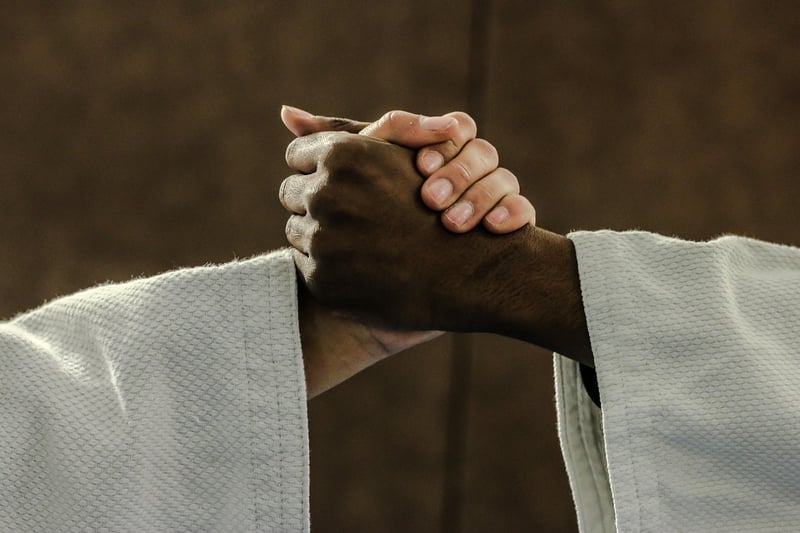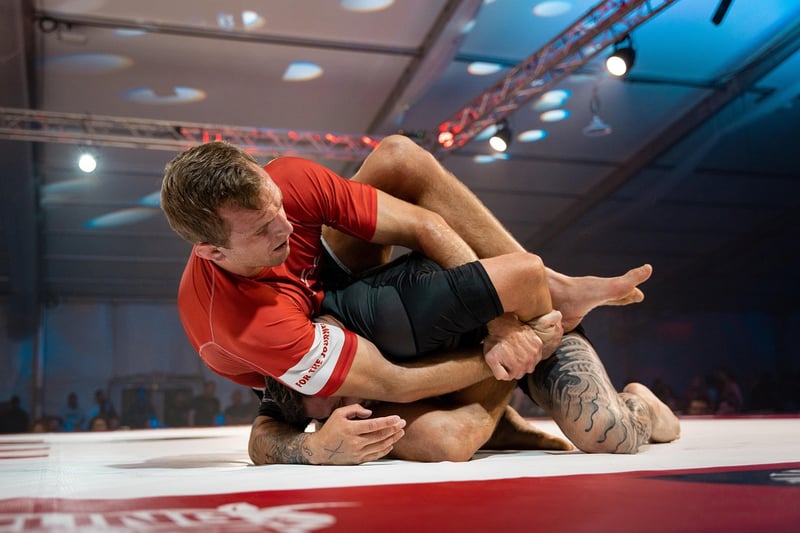Jiu-Jitsu
The Art of Discipline and Self-Defense: A Guide to Jiu-Jitsu
Jiu-Jitsu, a martial art originating from Japan, has gained immense popularity worldwide for its focus on discipline, self-defense, and physical fitness. This ancient art form has evolved over the centuries and has become a cornerstone of many self-defense systems. Let's delve into the world of Jiu-Jitsu and explore how it promotes discipline and enhances self-defense skills.
The Importance of Discipline in Jiu-Jitsu
Discipline is a fundamental aspect of Jiu-Jitsu training. Practitioners are required to adhere to a strict code of conduct, respect their instructors and training partners, and exhibit self-control at all times. The repetitive nature of Jiu-Jitsu techniques and the emphasis on perfecting each move instills discipline in practitioners, helping them stay focused, motivated, and dedicated to their practice.
Through consistent training and adherence to the principles of Jiu-Jitsu, practitioners develop mental fortitude, resilience, and a strong work ethic that extends beyond the dojo and into their daily lives. The discipline cultivated through Jiu-Jitsu training can positively impact various aspects of an individual's life, including relationships, work ethic, and personal growth.
Self-Defense and Empowerment through Jiu-Jitsu
Self-defense is a crucial aspect of Jiu-Jitsu, with techniques designed to enable individuals to defend themselves effectively in real-life situations. Unlike other martial arts that rely on striking or kicking, Jiu-Jitsu emphasizes leverage, joint locks, and submission holds to neutralize opponents, making it suitable for practitioners of all ages and body types.
One of the key principles of Jiu-Jitsu is that a smaller, weaker individual can defend themselves against a larger, stronger opponent through proper technique and leverage. This concept empowers individuals, instilling confidence and self-assurance in their ability to protect themselves and others if the need arises.
Training in Jiu-Jitsu
Training in Jiu-Jitsu involves rigorous physical conditioning, technical drills, and live sparring sessions to simulate real combat scenarios. Practitioners learn to think strategically, adapt to changing situations, and remain calm under pressure, essential skills for self-defense and personal safety.
Whether you are a beginner or an experienced martial artist, Jiu-Jitsu offers a comprehensive training program that caters to individuals of all skill levels. By immersing yourself in the art of Jiu-Jitsu, you can enhance your physical fitness, mental acuity, and self-defense capabilities while embracing the core values of discipline, respect, and humility.

Conclusion
Jiu-Jitsu is not just a martial art; it is a way of life that promotes discipline, self-defense, and personal growth. By embracing the principles of Jiu-Jitsu and dedicating yourself to its practice, you can cultivate valuable life skills, enhance your physical fitness, and develop the confidence to navigate life's challenges with resilience and grace.
Whether you are seeking to improve your self-defense skills, enhance your physical fitness, or cultivate a sense of discipline and self-mastery, Jiu-Jitsu offers a holistic approach to personal development that can benefit individuals of all ages and backgrounds.
